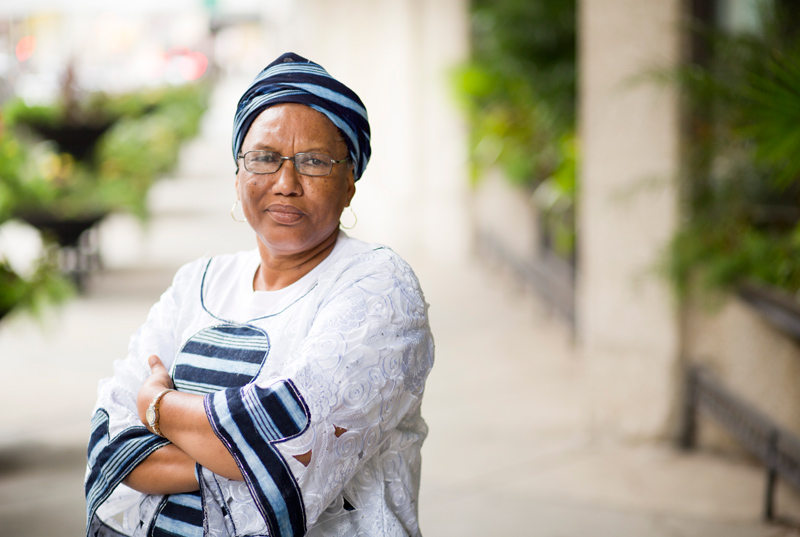Burkina Faso’s local food hero

A few weeks ago, 2,000 government officials, ambassadors, and journalists came together in the capital of Burkina Faso to taste some local food. They were the judges of the second annual Koudou du Faso (“Golden Spoon”), a nationwide contest that awards prizes to the best dishes made with local ingredients like fonio, a grain native to the West African nation.
A cooking contest might seem ill-suited to a country that experienced a food crisis this year, leaving many families unable to afford even the essentials. As of the end of 2012, good rainfall and better harvests have provided some relief, though food prices remain high in many parts of the Sahel region.
But Diénaba Diallo, whose farmers’ confederation co-organized the Koudou de Faso with Oxfam’s GROW campaign, said the contest was about more than just food—it was about showcasing the people behind the cuisine.
“When we’re talking about transforming local products, we’re talking about women,” said Diallo, who wants to raise the profiles of the women who grow and prepare much of the country’s food, and to ensure their voices are heard. “[Women] play an important role in agriculture, but they don’t always participate in decision-making,” she said.
Diallo is president of the women’s caucus of Burkina Faso’s small-scale farmers’ association, and she believes that these women could, with the right resources, help prevent another crisis. “It’s really necessary to invest in small-holder farmers,” she explained. “[They need] access to seeds, to other technologies, and especially access to credit.”
Diallo has been an advocate for women since 1992, when she left her job as a math teacher in Ouagadougou to move back to her hometown, a rural herding community in northern Burkina Faso. She started a successful business—a dairy, which now employs six other women—and raised a family of her own.
As the founder of her community’s first women’s association, Diallo helped fellow members plant a shared garden, buy a herd of livestock, and learn to read and write. “I wanted women to be empowered and to feel fulfilled,” said Diallo of these efforts. She convinced other local mothers to send their children to school, which the former teacher believes will be essential for securing her country’s future.
When I spoke to Diallo by phone in October, she was far from home: in Iowa, finishing a series of speaking engagements at Oxfam’s World Food Day events around the country. Many events featured locally grown food from here in the US, and provided Diallo with another way to challenge preconceptions.
“People think that in Africa there’s nothing but starvation and problems. I just want them to know that there are people there who are working really hard,” said Diallo. “They just need a little bit of a push to help them, and then they can resolve their own problems, and fight against hunger.”